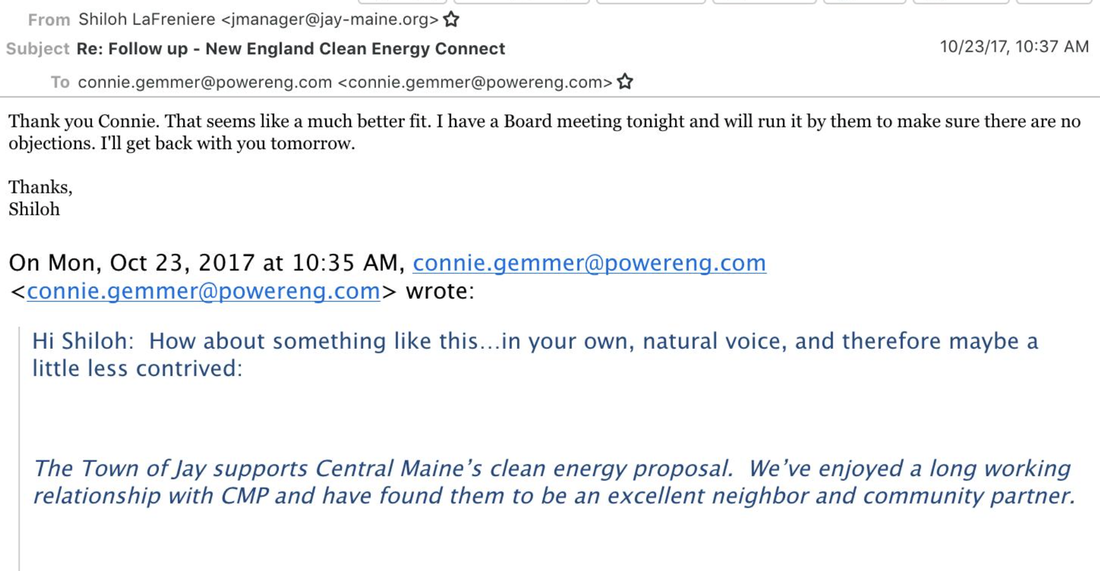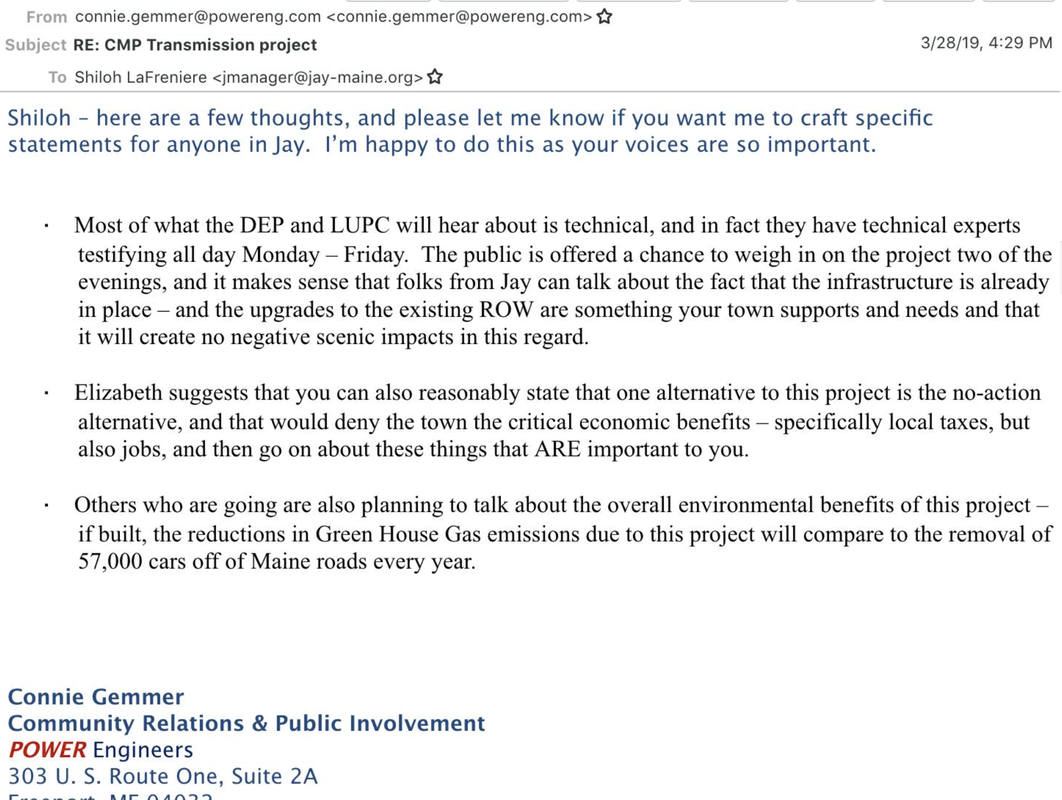How about something like this...in you own, natural voice, and therefore maybe a little less contrived...
Contrived - adjective - deliberately created rather than arising naturally or spontaneously.
Created or arranged in a way that seems artificial and unrealistic: the ending of the novel is too pat and contrived.
What is "your own, natural voice," and how does one master using it when delivering a contrived statement?
This is pure garbage, brought to you by Central Maine Power's paid public relations spinners as they advise officials from the Town of Jay on what to say at various meetings and hearings on CMP's New England Clean Energy Connect transmission project.
What kind of collusion is this?
So, now Mainers find out that the Town of Jay has been nothing but a mouthpiece for CMP. I don't think many of them are surprised, however they are angry, as they have every right to be. Just two nights ago, the Town of Jay illegally rejected a citizen petition to allow a Town vote on the NECEC. You have to wonder if that action was also orchestrated by CMP. In fact, does the Town of Jay do anything of its own "natural" initiative?
While shocking, this kind of utility puppeteering of elected officials, regulators, and sycophantic business and community groups is nothing new. It has happened so much in the past that it's been a regular part of the utility transmission approval playbook. I'm sure Connie and Elizabeth know it well. Front groups, advertising, closed-door-lobbying, and advocacy buys are how the utility tilts the playing field in its favor, and these same tactics have been used over and over again on different transmission projects.
It all costs money. Lots of money. Who pays for it? The utility may wrongly believe that it is the consumers who ultimately pay the cost of the transmission project. In a traditional cost-of-service project, that would be the captive ratepayers who benefit from the project. In NECEC's case, as a merchant project, it will be the electric ratepayers in Massachusetts, who have voluntarily contracted to purchase transmission capacity on NECEC for a set price.
Do Massachusetts ratepayers want to pay for this kind of nonsense? Is it legal to require them to do so? Many states have strict rules regarding the kinds of costs that may be folded into cost-of-service rates. Lobbying and advocacy buys are generally prohibited from recovery and must be absorbed in utility profits (shareholders pay these costs because they only benefit the company, not the ratepayers). In addition, the Federal Energy Regulatory Commission issued an Opinion in 2017 prohibiting recovery of these kinds of costs in interstate transmission rates. It's pretty cut and dried that the cost of advocacy programs shall not be recovered from ratepayers.
Except NECEC is a merchant project. Its rates are voluntarily negotiated and a price is set in the contract. The transmission owner cannot increase that rate later to cover the cost of advocacy buys. CMP probably built in a fixed budget for advocacy in its contract with Massachusetts, and it has been spending freely. Massachusetts ratepayers will pay that cost regardless, with any difference between the budget and actual costs either becoming additional profit for NECEC, or decreasing CMP's profit.
All the costs of CMP's advocacy buys end up in the electric bills of Massachusetts ratepayers. Every last one of them needs to think about that every time they flip the light switch to use some of that great "clean" Canadian hydropower their government has mandated. And it's going to get pretty expensive, because the citizens of Maine aren't backing down. At some point, CMP is going to meet or exceed its advocacy budget, and then the cost of continuing this farce comes out of company pockets. How might CMP decrease services elsewhere to make up for this loss?


 RSS Feed
RSS Feed